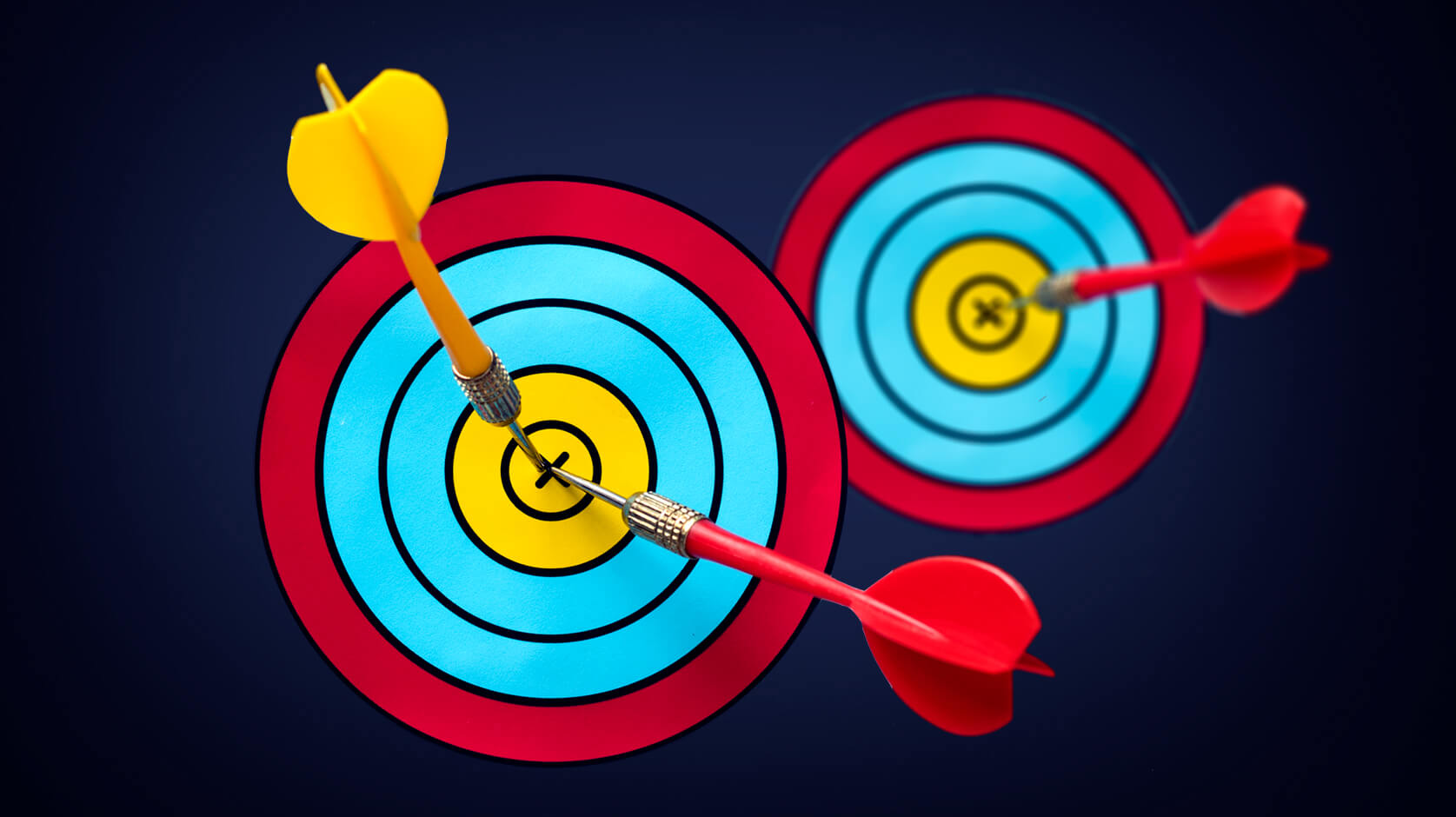Hello!
If you’re a coach, you know that the marketing of your business is integral to creating trust within a community of potential clients. Building a solid online brand for coaches can be done through various SEO strategies. Before diving into that, let me tell you how SEO becomes the basis of guaranteed success.
Can SEO help you build a stronger online presence?
 You could have a great product or service, but if no one knows about it, it won’t matter. This is especially true when it comes to growing your business online. A strong online presence is crucial for any business because it allows you to reach potential customers and customers of the past — all in one place. A strong online presence can help coaches build trust with clients by providing proof that they are providing high-quality services and products.
You could have a great product or service, but if no one knows about it, it won’t matter. This is especially true when it comes to growing your business online. A strong online presence is crucial for any business because it allows you to reach potential customers and customers of the past — all in one place. A strong online presence can help coaches build trust with clients by providing proof that they are providing high-quality services and products.
But how do you build a stronger online presence? The answer is simple: SEO.
SEO is about ranking higher on search engines and providing relevant and helpful information for the target audience. By creating a user-friendly website with straightforward and easy-to-use navigation, providing valuable information about your services, and engaging with your audience through social media and other online channels.
The Importance of SEO for Coaches
You might be thinking: Who cares about SEO? I have a coaching business, and I’m not worried about search engine optimization (SEO) at all. Man, aew we right? Well, it doesn’t mean that you shouldn’t care. In fact, the importance of creating a strong brand in today’s digital world is no different than it was 20 years ago – it’s more important than ever before!
 SEO is crucial for coaches looking to establish a strong online presence and attract new clients. With so many online coaches and coaching services, it can be challenging and demanding to stand out and be found by potential clients.
SEO is crucial for coaches looking to establish a strong online presence and attract new clients. With so many online coaches and coaching services, it can be challenging and demanding to stand out and be found by potential clients.
SEO can help to improve the visibility of a coach’s website and increase the likelihood that it will be seen by those searching for coaching services.
SEO can even help coaches track their website’s performance and understand how users interact with it.
Build brand awareness
 Building brand awareness for coaches through SEO involves creating a strong online presence that establishes the coach as a thought leader in their field.
Building brand awareness for coaches through SEO involves creating a strong online presence that establishes the coach as a thought leader in their field.
SEO is a crucial part of any marketing campaign. It’s no longer simply about getting more traffic to your site but also about increasing the number of people who can find out about your business.
When building brand awareness, SEO can help you reach new customers and increase your conversion rates — even if you’re not a customer-facing business.
Generate leads
SEO is the process of enhancing your online visibility, which helps you generate leads for your website. It can be done by optimizing your website content, including its architecture and navigation, as well as its on-page factors like keyword density, page load speed and more.
In addition to improving the overall performance of a website, SEO also helps you rank higher in search engines like Google, Yahoo! and Bing. This allows users to find your site more quickly when they search for relevant terms.
 Search engine optimization is not just about getting people to visit your site; it’s also about using their interests to influence their decision to visit your site. You might have noticed that when someone links to another site from yours, they usually link back to the original link that sent them there. That’s because most people click through from other sites rather than copying and pasting the link into their browser (although some people may do this).
Search engine optimization is not just about getting people to visit your site; it’s also about using their interests to influence their decision to visit your site. You might have noticed that when someone links to another site from yours, they usually link back to the original link that sent them there. That’s because most people click through from other sites rather than copying and pasting the link into their browser (although some people may do this).
SEO aims to get these people to link back to your site instead of going directly there. This gives you more visibility on search engines like Google because it shows up in related searches.
Creates Trust
SEO can play a crucial role in creating trust for coaches by establishing them as a reputable and reliable source of information in their field. Positive reviews on the coach’s website, Google, or other review sites can demonstrate the coach’s ability to provide high-quality services and build trust with potential clients. By utilizing SEO to establish a solid online presence and establish trust with potential clients, coaches can increase the likelihood that potential clients will contact them for business coaching services.
3 Main components for building SEO
SEO is all about positioning your website in the right places, at the right times. Building a solid SEO strategy involves several key components. A coach can ensure increased clientele rates and turnovers by focusing on each properly.
Content
 SEO-optimized content is essential for coaches looking to establish a strong online presence and attract new clients. By creating high-quality, relevant, and informative content optimized for search engines, coaches can improve their website’s visibility in search engine results and make it easier for potential clients to find them.
SEO-optimized content is essential for coaches looking to establish a strong online presence and attract new clients. By creating high-quality, relevant, and informative content optimized for search engines, coaches can improve their website’s visibility in search engine results and make it easier for potential clients to find them.
Link Building
Getting backlinks from other websites to a coach’s website is known as link building. These backlinks will act as a “vote of confidence” for search engines, indicating that other websites consider the coach’s website to be a valuable and authoritative source of information. Coaches may position their website as a reliable resource and draw in more potential customers by using various link-building techniques like guest blogging, fixing broken links, and resource page link-building.
Technical SEO
Technical SEO means optimizing the technical aspects of a website to make it more easily crawlable and understandable by search engines. It involves various technical elements, such as website structure, code optimization, and site speed.
Website structure: Ensuring that the website’s layout is clear, easy to navigate, and includes a proper hierarchy of headings (H1, H2, etc.) can make the website’s content simpler for search engines to crawl and interpret.
 Code optimization: Optimizing the website’s code, such as by minifying CSS and JavaScript, can help to improve page load times and make it easier for search engines to crawl the website.
Code optimization: Optimizing the website’s code, such as by minifying CSS and JavaScript, can help to improve page load times and make it easier for search engines to crawl the website.
Site speed: Optimizing the website’s speed, such as by compressing images and using a Content Delivery Network (CDN), can help to improve the user experience and make it easier for search engines to crawl the website.
Mobile optimization: Ensuring that the website is mobile-friendly and responsive can help to improve the user experience and make it easier for search engines to crawl the website on mobile devices.
XML Sitemap: Creating and submitting an XML sitemap can help search engines find and crawl all the website pages.
Robots.txt: Creating and submitting a robots.txt file can instruct search engines which pages or sections of the website should not be crawled.
Structured data: Search engines can better understand the content and context of a website by implementing structured data using schema markup, increasing the likelihood that the page will show up in rich snippets and other specialized search results.
By addressing these and other technical SEO elements, coaches can help to improve the visibility of their website in search engine results and make it easier for potential clients to find them. However, it’s important to note that technical SEO is a continuous process that needs regular observation and adjustments to keep up with changes in search engine algorithms and best practices.
Step By Step Guide for developing SEO for Coaches
SEO is not just about keywords and keywords. It’s about building your brand and developing a strong online presence.
This guide will show you how to create an SEO strategy for coaches and what it takes to create a successful digital marketing campaign.
Develop Your Ideal Coaching Client Avatar
 Developing an ideal coaching client avatar, also known as a buyer persona, is an essential step in attracting the right clients for your coaching business. Based on market research and basic information about your current and previous clients, a buyer persona is a fictitious depiction of your ideal customer.
Developing an ideal coaching client avatar, also known as a buyer persona, is an essential step in attracting the right clients for your coaching business. Based on market research and basic information about your current and previous clients, a buyer persona is a fictitious depiction of your ideal customer.
Here’s a step-by-step guide to developing your ideal coaching client avatar:
Conduct market research: Gather information about your current and past clients, including demographics, psychographics, and their needs and goals. Use this information to identify patterns and commonalities among your clients.
Create a fictional representation: Using the information from your market research, create a fictional representation of your ideal client. Give them a name, age, occupation, and other relevant characteristics.
Identify their needs and goals: Understand what your ideal client needs and wants from a coach, as well as their challenges and goals. This will help you to tailor your coaching services and marketing efforts to meet their specific needs.
 Understand their decision-making process: Understand how your ideal client makes decisions, including the factors that influence their decision to hire a coach and the information they need to make that decision.
Understand their decision-making process: Understand how your ideal client makes decisions, including the factors that influence their decision to hire a coach and the information they need to make that decision.
Create a detailed profile: Once you have a clear understanding of your ideal client, create a detailed profile that includes all of the information you’ve gathered. This will be a valuable tool as you develop your coaching services and marketing efforts.
Keep it updated: As you gain more clients, keep updating your client avatar based on the new data you collect. It’s essential to keep it relevant and accurate.
Developing such a persona will help you to understand the needs, wants, challenges, and goals, as well as the demographics and psychographics of your client pool.
Conduct SEO Keyword Research for Static Pages
 Conducting an SEO keyword research for static pages involves identifying relevant keywords that potential clients are searching for and incorporating them into the static page’s content and meta tags to improve the page’s visibility in search engine results.
Conducting an SEO keyword research for static pages involves identifying relevant keywords that potential clients are searching for and incorporating them into the static page’s content and meta tags to improve the page’s visibility in search engine results.
Here’s a step-by-step guide to conducting SEO keyword research for static pages:
- Identify the main topic of the static page: Determine the main theme or topic of the static page and make a list of related keywords and phrases.
- Use keyword research tools: Use keyword research tools, such as Google Keyword Planner, SEMrush, and Ahrefs, to find relevant keywords related to the main topic of the static page. These tools can provide data on the search volume, competition, and CPC (cost per click) of keywords.
- Analyze the competition: Analyze the competition for the keywords you’ve identified by looking at the top-ranking websites for those keywords.
- Identify long-tail keywords: More precise keywords, known as long-tail and are less competitive than short-tail keywords. They are more likely to be used by people who are further along in the buying process and looking for a specific solution.
- Incorporate keywords into the static page: Once you’ve identified relevant keywords, incorporate them into the static page’s content, meta tags, and meta description. Make sure that the keywords are used naturally and that the content is still high-quality and relevant to the user.
- Optimize images: Optimize images on the static page by using alt tags and file names that are unique and contain the primary keyword.
- Track and measure the results: Keep track of your pages. Adjust as needed to improve the page’s visibility in search engine results.
Organize Your Static Pages
 Organizing your static pages is an important step in creating a user-friendly and search engine-friendly website. Static pages are permanent web pages that contain information that does not change over time, such as an “About Us” page or a “Services” page. Here’s a step-by-step guide to organizing your static pages:
Organizing your static pages is an important step in creating a user-friendly and search engine-friendly website. Static pages are permanent web pages that contain information that does not change over time, such as an “About Us” page or a “Services” page. Here’s a step-by-step guide to organizing your static pages:
Define the purpose of each page: Determine the purpose and main topic of each static page and make sure that the content and design of the page align with that purpose.
Create a clear hierarchy: The material on each page should be arranged using a clear hierarchy of headers and subheadings.
Use clear navigation: Create a clear and easy-to-use navigation menu that organizes your static pages in a logical way and makes it easy for users to find the information they are looking for.
Optimize for search engines: Use relevant keywords and meta tags to optimize each page for search engines and make sure that the page is easily crawlable by search engines.
 Utilize calls to action: Include calls to action (CTAs) on each page to encourage users to take a specific action, such as contacting you for more information or scheduling a consultation.
Utilize calls to action: Include calls to action (CTAs) on each page to encourage users to take a specific action, such as contacting you for more information or scheduling a consultation.
Link to other relevant pages: To help consumers and search engines understand the relationships between different pages and the general structure of your website, include connections to other pertinent pages on your website.
Monitor and adjust: Regularly monitor the performance of each page and adjust accordingly.
Start Writing SEO-Optimized Content
In order to increase the ranking of your website in search engine results, writing SEO-optimized content involves producing high-quality, relevant, and helpful content that is optimized for search engines. The best way to start writing SEO-optimized pages is by using the following tips:
Make sure that your page title and meta description have keywords in them. This will help search engines find your page more quickly when they are looking for specific information about your topic.
 Write a compelling paragraph that will entice the reader to click on your link. You should use keywords in this paragraph as well, but don’t overdo it because people get annoyed when they see too many keywords on one page.
Write a compelling paragraph that will entice the reader to click on your link. You should use keywords in this paragraph as well, but don’t overdo it because people get annoyed when they see too many keywords on one page.
Include links back to other pages on your website so that people will be convinced by your content and want to continue reading more about what you have written about.
Understand your audience and strategize and organize the information in an engaging order. Use multimedia such as images and videos to make your content more engaging and shareable. Optimize for mobile and speed.
Conclusion
SEO is a powerful tool for coaches to improve their online presence. It can lead to more opportunities, more clients, and better rankings in search engines. It’s important to note that SEO is an ongoing process, and it takes time to see the results. Regularly monitoring your website’s analytics and making adjustments based on the data can help you stay on top of changes in your industry’s search algorithms and trends.
Always remember: SEO is a long-term game where small changes add up over time and produce significant results!
Thank you!
Join us on social media!
See you!






